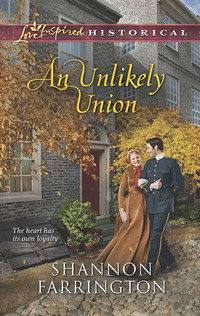
Полная версия
Handpicked Family
“How d’ we know if you’ll still have food by one o’clock?” Jack Zimmer yelled.
“How do we know ya won’t give it to someone else?” Tom O’Neil added.
As the men continued to pepper the parson with questions, Peter stealthily felt for the derringer tucked discreetly inside his frock coat pocket. Yes, this was a mission of mercy but he was not about to be at the mercy of a riotous mob. He’d seen what desperate men could do before. Back in 1861, an unruly pack in Baltimore had rioted and brought about the opening bloodshed of four years of war.
And for what good? Peter thought. The result was that a generation of America’s brightest and best were dead and the country was reunified in name only. Southerners hated Northerners and vice versa, and the freedmen who’d once been controlled by slave masters were now victims of an ineffective Federal bureaucracy. The promise of a more perfect union for all had yet to be fulfilled and Peter took that offense personally. He’d had two brothers give their lives in the hope of a better tomorrow and he was determined not to let their sacrifices be in vain.
Sadly he wasn’t surprised by Dr. Mackay’s report that the Federal escorts had deserted the wagon convoy, nor that a shipment of supplies had been stolen. Who’d taken it...well, of that he couldn’t be sure. He’d met more than one US soldier who’d rather see Southerners starve, and just as many Southerners who would steal or kill to prevent that from happening.
Clutching the derringer, he cast a quick glance at Miss Martin. And she has no idea what she has stepped into. This is no place for a lady. Mrs. Mackay has a husband to look after her. Peter knew that because Miss Martin was his employee, her welfare would now fall to him. And that’s the last thing I need. He already had a woman for whom he needed to claim responsibility—as soon as he could find her. Caroline. Caroline Carpenter. His brother’s widow.
His thoughts quickly returned to the Baltimore belle before him. Foolish woman, he thought. I never should have hired her. He told himself he should have known from the beginning that her naive boldness would be trouble. He remembered vividly the day she had stepped into his office. “My sister tells me you are in need of workers for your newspaper,” she had said. “I’m here to apply.”
He’d stared at her for a moment, half in shock, half in admiration over her straightforward approach. Most women seemed somewhat intimidated by him. Even now her sister Elizabeth still had a tendency to call him “sir.”
“What can you do?” he’d asked.
Miss Martin had confessed that, unlike her sister, she had no artistic talents, but that she had a good grasp of grammar and had won numerous spelling medals in school. “I thought you might be in need of a proofreader.”
In actuality, he had been, and he had offered her a position on a trial basis. She had excelled in her tasks, and soon Peter had offered her the position permanently. Truth be told, she had been a great help to him. Up until the point she pegged me for a husband. I thought I had put a stop to that. Evidently she did not take the hint.
In that instant Jack Zimmer rightfully reclaimed his attention. His voice was growing more emphatic with each word he spoke. “Look, preacher, we aren’t leaving here till you give us some food.”
Jones and O’Neil were armed with pitchforks. The others were lame, but taken collectively, they could still be a considerable force. Peter assessed his own strength. If he stayed on his horse he’d have the upper hand, but Zimmer knows my weakness. If he forces me to the ground I’ll be useless. He glanced at Reverend Webb. Preacher won’t fight. He’s a man of peace. And Dr. MacKay is closest to the women...
The derringer was his only safeguard. Although he despised the thought of firing it, he would do so if it came to that. Miss Martin had left him little other choice. Hopefully just showing it would be enough.
“We can give you all a little something now,” she suddenly announced.
Everyone, including Peter, immediately turned in her direction. That naive, hopeful look was on her face. Have mercy, he grumbled to himself.
“We packed small sacks of cornmeal,” she said. “We can give you some of that. They are at the back of Dr. Mackay’s wagon.”
Don’t tell them what you have! Peter thought. Let alone where it is! But much to his surprise, her offer seemed to defuse the tension.
“It be real flour?” Mr. Jones asked. “None a that ground-up chalk the carpetbaggers bring through?”
“Yes, sir,” she said. “Real food. Real cornmeal.”
While Jones and O’Neil were pleased enough to drop their pitchforks, Zimmer still didn’t look happy. Wheat had been the primary staple before the war. The cattle and the slaves ate the corn. But these people would have to settle for anything they could swallow.
Jones pressed his way to the front of the group. “Well, word or not, I’m not going to pass up the chance for some meal right now. I’ll take what’s offered.”
O’Neil stepped toward the wagons also. Reverend Webb encouraged the others to form a queue. On the principle that some food was better than none, Zimmer joined it, as well.
“What about medicines?” he asked. “People around here are sick.”
“Aye,” Dr. Mackay said, “but first we must reorganize our supplies. Come to the church. We will do our best by you there.”
The situation had been remedied, at least for now. Still Peter kept his guard. With one eye he watched the men. With the other he studied Miss Martin. She was smiling, no doubt pleased with herself and hoping he would be pleased with her. Well, he wasn’t, and at the risk of being ungentlemanly, he was going to let her know that.
* * *
The cornmeal had been distributed without further incident and the men were now returning to what remained of their homes. Emily was helping her husband resecure the oilcloth cover over their wagon while Trudy held the second one in check. Mr. Carpenter was still on his horse, his back ramrod straight as if poised for battle. Since there had been no skirmish with the hungry men, was he now about to engage her in one? Apparently so, for when the last local man disappeared over the knoll, her employer slid from his horse and lumbered toward her.
He had that look in his eye, the one he showed in the newsroom whenever a reporter missed a deadline or the proof sheets weren’t to his liking. Trudy’s thoughts tumbled nervously over one another. Inadvertently she tightened her reins. Her horse threw his head in protest. Quickly she tried to correct her mistake but only made matters worse. Now the horse seemed determined to back up.
“No... No... Don’t do that! Please, no.”
“Loosen the reins, Miss Martin!” Mr. Carpenter commanded as he muscled his way, albeit somewhat awkwardly, into the driver’s box. His ink-stained hands reached for hers. Forcefully he commandeered the reins.
“Stand!” he called to the beast.
The horse promptly obeyed. Trudy had no doubt that it would. Even she felt the sudden urge to sit bolt upright at attention.
“You must be more careful.”
“Y-yes...” She replied. For a split second she was tempted to call him “sir” but she knew he did not like that title.
“It’s Mr. Carpenter or Peter,” he’d always said, and although she had wanted to call him by his Christian name, she certainly would not do so now. He might think more of the familiarity than she actually meant.
“Miss Martin,” he said as he put on the brake and then turned to her. His probing brown eyes seemed to bore right into her soul. “Why exactly are you here in your brother-in-law’s place?”
Trudy swallowed hard. “Exactly?”
“Yes, Miss Martin.”
“Well... Mr. Collins is ill and cannot oversee the paper...”
Still the look... Elizabeth called it frightening, like standing before a judge who was eagerly awaiting confession so he might pronounce sentence. Trudy was beginning to understand. He uses this tactic to assert his authority, to intimidate. Why hadn’t she noticed this about him before?
Do not worry. I’ve no longer any interest in you whatsoever, she wanted to say, but she had been raised to be a lady. Even if at times she failed to live up to the standard, she was determined now to salvage some shred of dignity. And a lady wouldn’t dare broach the subject of romance with a man. So she was committed to explain in as few words as possible. After all, she had come here for other reasons—ones totally unrelated to him.
“Elizabeth is feeling very poorly—”
“And you thought it best to leave her and come here?”
Guilt threatened to creep back in but she lifted her chin. Elizabeth was fine. She didn’t need her help, but according to Emily, the people here did. “David was worried and Mr. Collins is now ill, so he will be caring for his wife and overseeing the paper in your absence.”
Mr. Carpenter rolled his eyes at that. She did not stop to ask why. Trudy then explained that her brother had been wounded here. “I wanted to express my thanks to Reverend Webb.”
“This is no sightseeing expedition, Miss Martin.” The look he gave her then made her wanted to leap from the wagon, run all the way back to Mount Jackson and climb aboard the first train to Baltimore, but Trudy steeled her resolve.
I have injected myself into his cause, wrongly, perhaps, but it is done and I will see this mission through. “I realize that, Mr. Carpenter,” she said firmly, “I am here to render aid, not play the role of a tourist.”
“Good,” he said in that commanding voice of his. “As a representative of my newspaper I expect you to do your job.”
“I shan’t do anything else.”
“Good,” he said once more. “Make certain of that.”
I will, she thought as she continued to hold his look. Believe me, the subject of romance is firmly closed. He had read her motives once before. Trudy trusted he had read between the lines now, for without further word, her employer disengaged the brake and urged the horse forward.
Chapter Two
It wasn’t the encounter with Zimmer and the rest of his rough-looking compatriots that had left Miss Martin silent. It was Peter’s remarks that kept her stone still beside him. He felt bad for speaking harshly to her, especially when he accused her of sightseeing, but he told himself it had to be done. She said she had come because of her brother, a desire to help him and the reverend who had tended him. He just wanted to be certain that was her only reason.
If she had put the idea of marriage to him out of her mind, then he had been successful. If he had made her reconsider marriage in general, then even better. If only Caroline had more carefully considered such things before my brother came along.
The wagon jolted and Miss Martin’s arm brushed his. Peter’s thoughts returned to her.
Romantic notions aside, he was genuinely concerned for her welfare. She does not belong here. Ideally they’d soon go their separate ways. Just as they’d resumed their trek to the church, Dr. Mackay had mentioned the possibility of sending for more supplies. Hopefully Miss Martin would be the one to return to Baltimore to do so. It’s the best place for her.
Miss Martin’s innocent, open nature was refreshing, but it was also unnerving. She believes the best about everyone she meets and thinks that love, faith and hope are enough to set the world right.
His brothers had thought the same.
But hope can’t reverse time or raise the dead, Peter thought. This world is no longer a Garden of Eden, not since jealousy, greed and murder entered it. And in this desolate place, there are too many who would take advantage of that innocence rather than protect it. Better by far for her to be on her way. He cast Miss Martin a glance as the wagon lurched forward. Silence still reigned.
Presently she was taking in the scenery, but it was not the majestic Blue Ridge Mountains or the rock-dotted Shenandoah River that held her attention. It was the imprint of war. For miles she had viewed charred remains of barns and stables, empty homesteads now covered with vines, but the nearer they came to the town of Forest Glade, the more evident the destruction.
The once prosperous little hamlet on the north fork of the river was now only a shell of its former glory. The flour mill had been destroyed. The sawmill was much the same. Remnants of warped and twisted machinery sat rusting into oblivion. Of the workers’ houses opposite the sites, not a structure remained intact.
“This makes me angry,” Miss Martin said suddenly.
“It should,” Peter replied.
After the space of a heartbeat she then said, “I can’t help but wonder what has happened to the people who lived here, who worked here? Are the men we met just now on the road the most desperate of the lot or are there others worse off than they?”
He could hear the emotion in her voice, the compassion. That was another thing he admired about her. At her age most Baltimore belles would be focused on replacing their outdated wardrobes as soon as possible. He gave her a quick once-over. Here she sat in homespun, protected from the rain by only a plain knitted gray shawl and an unembellished straw hat. She looked damp and uncomfortable but she was not complaining.
Again his conscience was pricked. I did speak harshly to her. Perhaps more harshly than necessary. “That’s what I’m here to find out,” he said, “and to hold those responsible who promised to make reparations.”
She looked at him with those wide, innocent green eyes. “I’ll help you in any way I can,” she promised.
Great. He sighed under his breath, for in his opinion she was still a little too eager to help him. Making quite the effort to keep his irritation from coming through in his voice, he then said, “Well, I’m not all that certain how much help you can be. I can’t have you going off investigating, gathering information on your own.”
She took no offense at that. Thankfully, she realized he didn’t doubt her research abilities but her physical safety. “That’s why you wanted David,” she said.
“Yes,” he said simply.
She turned her attention back to the road. So did he. The wagon rocked and bounced over the uneven ground. About a half mile beyond the crossroads stood the church. Its faded white steeple still pointed faithfully toward the rolling gray sky, but vines and thistles were fast consuming its foundation. Boards had been nailed across several broken windows to protect the panes from further damage. Peter couldn’t help but wonder what it had looked like when Daniel first saw it, or when Miss Martin’s brother had, for that matter.
Were they both here at the same time? Knowing that detail had no bearing on his personal mission, Peter pushed the thought from his mind. As they pulled into the churchyard, Reverend Webb’s wife, Sarah, met them. “Thank the Lord for your safe arrival,” she said. “I’m so pleased to see all is well.”
But not without incident, Peter thought.
Her husband, James, explained what had happened on the road. Peter then reported the lost cargo. The woman’s tired face fell even further. “What exactly remains of your supplies?” she asked.
“We’ll need to take inventory to be certain of that,” Dr. Mackay said.
“Never fear,” Miss Martin added, her optimism apparently rebounding. “We can still assist many with what remains.”
The Mackays introduced themselves, and then Miss Martin. Mrs. Webb offered her a smile. Eager to converse with the woman, Miss Martin climbed down from the other side of the wagon and hurried to where the reverend’s wife stood.
Having secured the reins, Peter gingerly made his way to the ground, listening as Miss Martin explained that her brother had lodged at the church facilities.
“Oh?” Mrs. Webb said.
“Yes, and I was eager to come and thank you and help you in any way I can.”
Her enthusiasm was obvious. Peter didn’t doubt it was sincere but he couldn’t help but think, You won’t be so optimistic when you see the inside of the church. I’m certain it’s a far cry different from your own.
Half of the pews were missing. According to Reverend Webb, they had been used for firewood, stretchers and crutches following the battle of New Market when the church had served as a field hospital. Looking closely at the floor, one could still make out the bloodstains that had seeped into the wood planks.
Miss Martin noticed them at once. Peter saw the look of horror wash over her face. However, it quickly passed. Apparently she was determined to soldier on, but still in her naive way.
“Are you in need of further seating for your congregation?” she asked the reverend. “Perhaps we can find someone to craft more pews.”
Peter couldn’t help but roll his eyes at that. Crafting pews would not be high on anyone’s list around here, not when homes needed to be rebuilt first.
“Thank you, miss,” Reverend Webb said with all the gentleness of a seasoned saint, “but we have all we need, at least for those who attend now. Many of our church members are no more.”
“No more?”
“Deceased, miss. The fortunate ones have relocated, reunited with family elsewhere.”
“Oh,” she said slowly. “I see.”
Do you? Peter wondered. Do you now see the real world? For I don’t have time to enlighten you.
There were articles to write on the local provisional authorities and missing supplies to locate. He also wanted to assist in the reunion of displaced family members, but there was one particular family member he was most desperate to find—his brother Daniel’s bride.
Caroline. The bride Daniel had no business taking.
Peter drew in a breath. How did one even begin to locate such a woman when no one around here, not even the reverend, seemed to know who she was?
* * *
Trudy couldn’t help but feel sorry for this poor country preacher. He obviously cared for his community, and the fact that he could no longer account for much of it weighed heavily upon his heart. She laid a hand on the parson’s arm, and his dark mustache lifted with a smile.
“We will do all we can to help those people who remain,” she said.
“Thank you, miss,” he said. “I am most grateful to you and the others. Your coming is such an encouragement.”
At least it is to someone, she couldn’t help but think, for despite what she had hoped had been a closing conversation, Mr. Carpenter still looked irritated with her. Or is it simply the circumstances in which we find ourselves? If that were the case, then she could understand a little of what he was feeling.
Trudy had promised Reverend Webb they would do all they could to serve this community but knew their ability to do so had been diminished severely. The crates that had disappeared en route were the most valuable they carried. The wheat, dried meat and medicines were lost. So was the seed they had brought for planting fall vegetables. Mr. Carpenter had ruefully noted that not only were these items the most valuable in aid but they would also fetch the greatest price on the black market.
“Whoever took them knew exactly what would bring the most profit,” he’d said.
Those and his previous words taunted her. “Only a foolish man would bring a child into this world.”
Whatever his opinion, it doesn’t negate the fact that there are children in this world, she thought, children who require assistance. In fact, Reverend Webb had already mentioned needy youngsters in his congregation, specifically a six-year-old boy named Charlie, and a baby named Kate. Both were now fatherless because of the war, and their mother was desperate for relief. Will we be able to provide such?
“We can wire for more supplies,” Emily said, as if reading Trudy’s thoughts.
“Yes,” she agreed, for Trudy knew the churches and aid societies back in Baltimore would again be generous. My dearest friends, Julia, Rebekah and Sally will spend long hours gathering and packing what they can. For four years now they, along with Trudy and Elizabeth, had knitted socks and sewed shirts and other items for those in need. She was confident they would again rise to the occasion.
“We will wire back to Baltimore,” Dr. Mackay said. “And we will do so straightaway. Reverend Webb says the telegraph office in Larkinsville is still in order.”
“It is indeed,” Mr. Carpenter said. “The question is, though, will the shipments arrive here intact and in time to help this community? Some of these people will not see August if they do not get regular, proper nourishment soon. If a second shipment goes missing...” He paused as if to let them consider that for a moment. “It won’t do us any good to order more supplies while someone out there is stealing them for their own profit.”
“We don’t know for certain that’s what happened,” Reverend Webb said.
“Shipments loaded on a train don’t just vanish between one rail station and another,” Mr. Carpenter insisted.
Trudy’s heart squeezed. She knew her employer had a tendency to lean toward cynicism, but she had never seen him quite like this before. His frustration over the lost supplies was now bordering on despair.
“Well, that’s where you come in,” Dr. Mackay said to him. “I trust you will discover this person or these persons responsible for the missing supplies.” He then gestured to Trudy. “And now you even have your experienced newspaper assistant to help you.”
She could feel the color rising to her cheeks. Although she had promised to help Mr. Carpenter in whatever way she could, she remembered what he had said earlier, “I can’t have you going off investigating, gathering information on your own.” Based on the irritated look he was still giving her, he obviously didn’t want to work alongside her. His words confirmed that.
“From what I have seen of the people in this community, I believe Miss Martin’s efforts will be better served in medical endeavors rather than journalism,” he said. “She was, after all, a nurse.”
“Oh?” Reverend Webb said as Mr. Carpenter left the circle of conversation. “Wonderful. Then I trust you and Mrs. Mackay will work well together.”
“We always have,” Emily said.
“Indeed,” Trudy replied.
Emily then looked to her husband. “Your orders, love?”
The barest hint of a smile tugged at Dr. Mackay’s lips. They are so much in love, Trudy couldn’t help but think. She couldn’t help but wonder if someday a man would look at her that way. It certainly won’t be Mr. Carpenter.
A self-pitying lump threatened to form in Trudy’s throat, but she swallowed it back.
“When the people arrive we will need to first assess their conditions outside,” Dr. Mackay said. “If there is even the slightest indication of typhus or smallpox, we must immediately isolate them.”
Trudy understood. She knew from experience that they could not bring patients bearing such illnesses into close contact with others. They must be quarantined. “Where shall we put them?” she asked.
“My house,” Reverend Webb said.
Trudy could tell Dr. Mackay did not like the preacher’s sacrifice any more than she, but if typhus or smallpox patients came to them, they had to be treated somewhere. Trepidation wiggled its way up her spine. What would happen if the reverend and his wife took ill? Who would nurse them? What would happen if the entire relief staff took ill?
She pushed those fears from her mind. Dr. Mackay was still speaking.
“We will need to prepare a treatment area for the noninfectious patients here inside the church,” he said. “I expect many cases of malnutrition, unhealed wounds and the like.”
Under the physician’s guidance, Trudy and Emily prepared a medical area for detailed assessment of complaints and treatment. Trudy hoped whatever they encountered would not be serious, given their minimal supplies. They had been left with plenty of soap and bandages, as well as basic surgical instruments, but the case of morphine and ether was gone.







